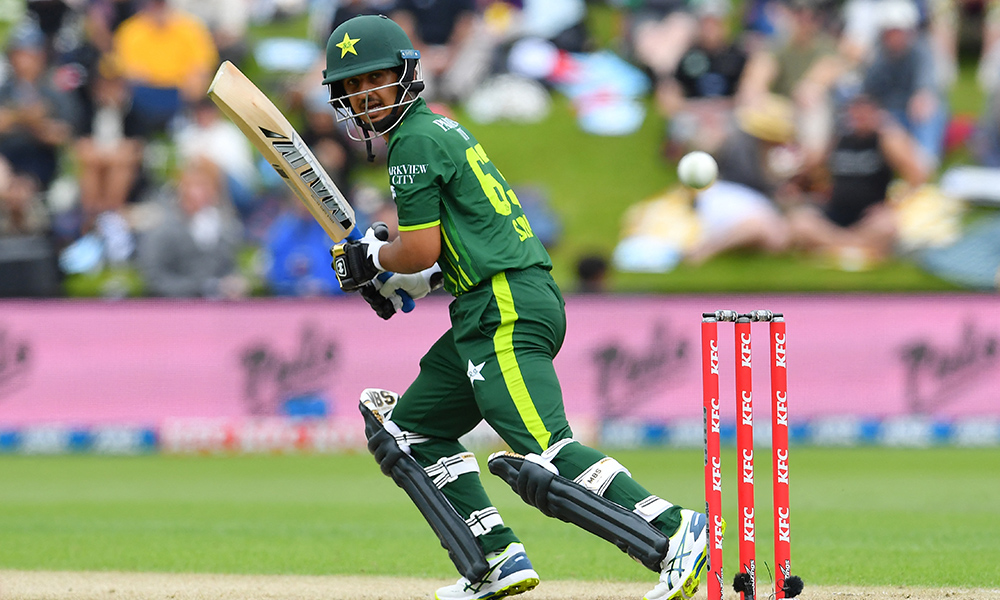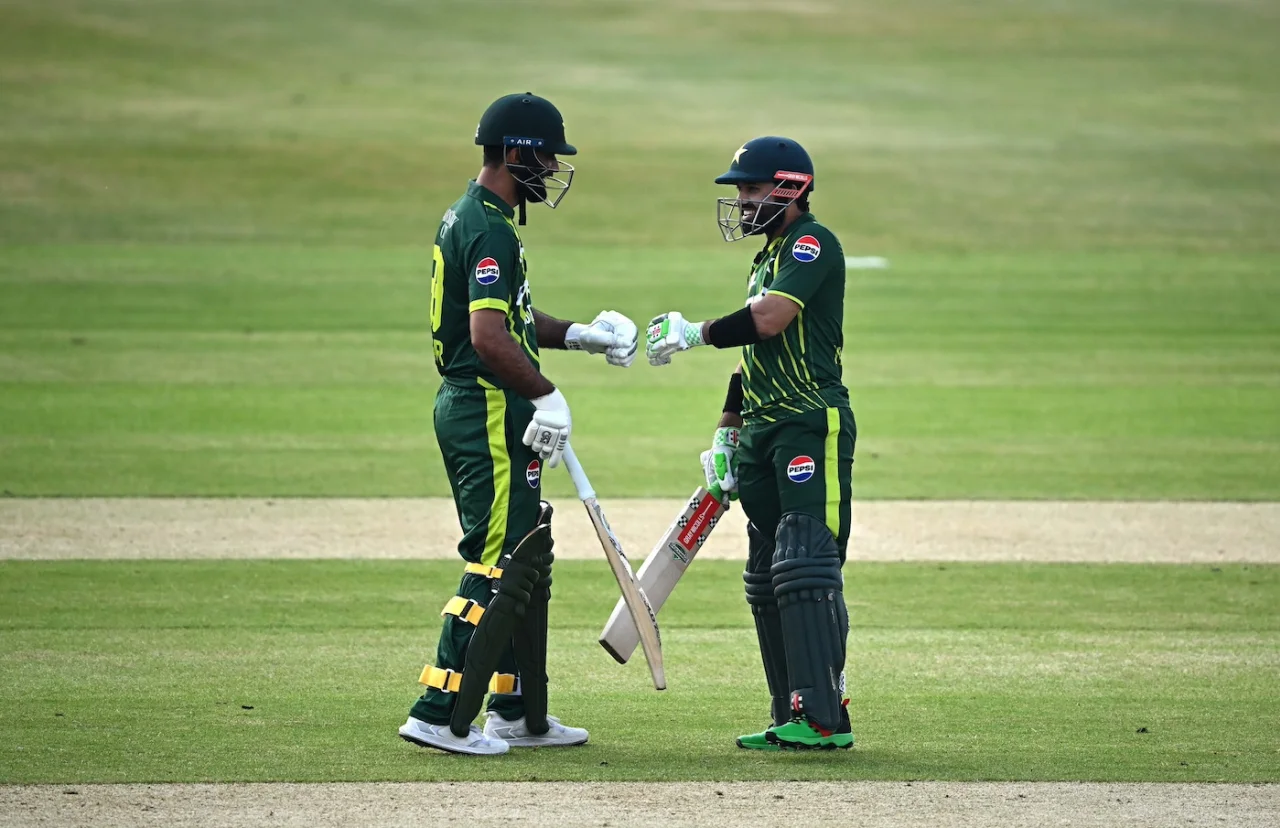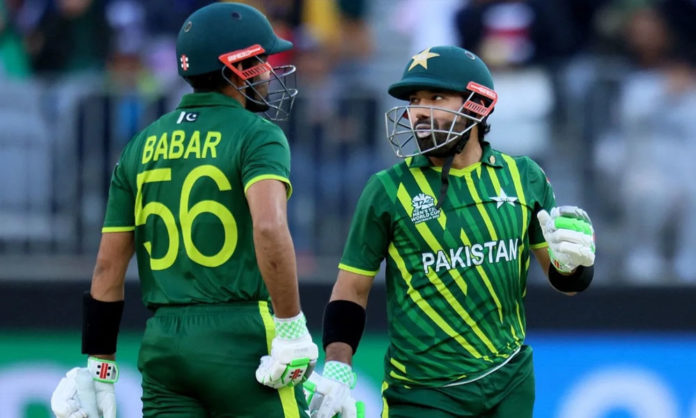In T20I cricket, the opening pair of Babar Azam and Mohammad Rizwan has been nothing short of legendary for Pakistan. Together, they’ve amassed 2,400 runs at an impressive average of 49. No other opening duo comes close; the next best is India’s Rohit Sharma and Shikhar Dhawan with 1,743 runs at 33.51.
Their partnership has delivered many memorable moments, such as their iconic 152-run stand against India in the T20 World Cup 2021. While they’ve excelled in chasing targets, their scoring rates when setting totals have been less impressive. Since the 2022 T20 World Cup, Pakistan’s scoring rate is 8.08 when batting first and 9.28 when chasing.
A New Approach: Enter Saim Ayub
To address this, Pakistan shifted from a cautious start to an aggressive approach right from the beginning, aligning with modern T20 strategies. Saim Ayub, a young left-hander known for his explosive batting in domestic leagues and the Pakistan Super League, was a natural choice for this new approach.
However, Saim has struggled to replicate his domestic form on the international stage. Opening in 11 consecutive T20Is this year, he has scored only 161 runs at an average of 14.63 and a strike rate of 137.60. His overall T20I numbers since his debut in March 2023—284 runs at an average of 15.77 and a strike rate of 130.87—have been underwhelming.

During the recent home series against New Zealand, where Pakistan rotated players extensively, Saim continued to open. The Ireland series was expected to be his breakthrough, and although he started well with 45 off 29 balls in the first match, he couldn’t maintain the momentum, scoring just 20 runs in the next two matches.
Impact on the Batting Order
Saim’s promotion has had a ripple effect on the rest of the batting lineup. Fakhar Zaman was pushed down to number four, and Babar moved to one drop.
Interestingly, Fakhar has thrived in this new role, scoring at a strike rate of 154.71, well above his career average. He has hit a fifty every third innings and accumulated 328 runs, showing significant improvement.
Babar, too, has adapted well to batting at number three. In eight innings in this position this year, he has scored 345 runs at a strike rate of 144.35, with five fifties. This is a notable increase from his career strike rate, indicating that Babar is delivering the brisk, consistent scores Pakistan needs.

The Road Ahead
With the T20 World Cup fast approaching and only four matches left to fine-tune their lineup, Pakistan faces a tough decision. Should they stick with Saim and hope he hits form at the right time, revert to the experienced Babar-Rizwan pair, or again try Fakhar as an opener?
Given Babar and Fakhar’s success in their new roles, it might be counterproductive to change their positions again. Instead, Pakistan should continue with Saim Ayub and Mohammad Rizwan as openers, with Babar and Fakhar following at three and four.
Saim has shown potential, and his past performances in the Caribbean suggest he could succeed in the conditions there. This lineup has the potential to balance experience and aggression, crucial for success in the T20 World Cup.
Stay tuned to Brandsynario for the latest news and updates.








































